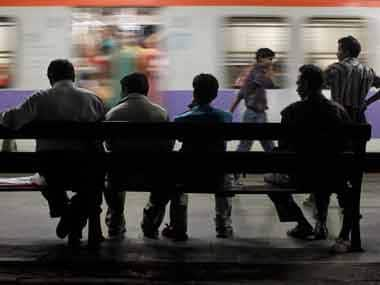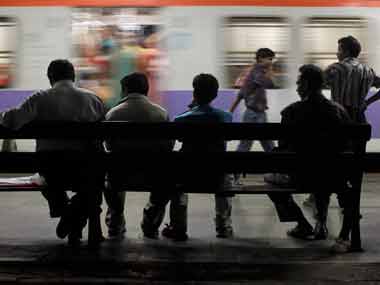The rise in air travellers may be a statement of aspirational India but a sad commentary on the Indian Railways to move with the times. Indeed the Indian Railways is caught in a time warp with Tamil Nadu Express trundling to Chennai from New Delhi in a leisurely 33 hours, the time it took in its inaugural run way back in 1980. Duronto, Rajdhani and Garib Rath plying on the same route, a distance of 2,200 km, make it in 28 hours, clocking an average speed of 79 kmph, not worthy of the superfast grade which we liberally confer on just about any train. The alibi routinely trotted out for the slow speed is our tracks cannot withstand high speeds but strengthening the existing tracks and laying new ones must be the top priority of the Railway Minister in the upcoming budget along with investment in basic safety that would prevent at least head on collision. [caption id=“attachment_2122625” align=“alignleft” width=“380”]
 Reuters image[/caption] Modernisation of Railway stations and making travel a lot more comfortable has to wait for none. At 125 kmph, the distance between Delhi and Chennai can be covered in 20 hours. The upshot would be that a lot of leisure travellers as well as business travellers could be weaned away from the fuel guzzling airplanes. A railway engine thanks to its humongous hauling capacity has the lowest per passenger-kilometre cost just as it has the lowest per tonne-kilometre cost. This advantage is nothing to scoff at by a populous country like India. The US has condemned itself to just two modes of travel — air and road — due to a century-old conspiracy by automobile manufacturers with politicians, resulting in enormous fuel-guzzling. Small wonder, its insatiable quest for hydrocarbon fuels locks it in a perpetual war with oil-producing countries even though both its anxieties and thirst have been relieved by shale gas of late. India is not so lucky though, and has to conserve use of oil, the best way of doing which is accent on Railways, the true omnibus. There is absolutely nothing wrong with the time-tested policy of air-conditioned class passengers subsidising the non-AC passengers so long as the former are not driven to air travel, especially if low cost airlines persist with the self-destructive policy of unsustainable fares. If airlines can open bookings a year in advance there is no reason why the Indian Railways should unnecessarily create a mad rush for tickets by restricting advance booking to just 60 days. In fact, liberal advance booking enables a service provider to earn interest which, in turn, can be used to reward the advanced bookers a la airlines. While AC passengers subsidising the hoi polloi cannot be resented by and large, the Railways has been for long shooting itself in the foot by making freight bear the cross as well for subsidising the common passenger fare. In the process it has been losing out to truckers who have the dubious distinction of being the worst fuel-guzzlers. Dedicated freight corridors are at least a decade away. What the railway minister can do in the immediate run is to make railway freight competitive for the business community. Perishables ideally must move in air-conditioned wagons but the least that can be done without any delay is to give them preference say over cement, as Prime Minister Modi never tires of pointing out. Bullet trains and WiFi-enabled trains can wait. The Swachh Bharat Abhiyan must also resonate in our railways. To Indians inured to lack of cleanliness, Delhi Metro comes as a refreshing change. It is also serving as a change agent with its passengers taking the message across on the importance of keeping our premises spick and span.
Reuters image[/caption] Modernisation of Railway stations and making travel a lot more comfortable has to wait for none. At 125 kmph, the distance between Delhi and Chennai can be covered in 20 hours. The upshot would be that a lot of leisure travellers as well as business travellers could be weaned away from the fuel guzzling airplanes. A railway engine thanks to its humongous hauling capacity has the lowest per passenger-kilometre cost just as it has the lowest per tonne-kilometre cost. This advantage is nothing to scoff at by a populous country like India. The US has condemned itself to just two modes of travel — air and road — due to a century-old conspiracy by automobile manufacturers with politicians, resulting in enormous fuel-guzzling. Small wonder, its insatiable quest for hydrocarbon fuels locks it in a perpetual war with oil-producing countries even though both its anxieties and thirst have been relieved by shale gas of late. India is not so lucky though, and has to conserve use of oil, the best way of doing which is accent on Railways, the true omnibus. There is absolutely nothing wrong with the time-tested policy of air-conditioned class passengers subsidising the non-AC passengers so long as the former are not driven to air travel, especially if low cost airlines persist with the self-destructive policy of unsustainable fares. If airlines can open bookings a year in advance there is no reason why the Indian Railways should unnecessarily create a mad rush for tickets by restricting advance booking to just 60 days. In fact, liberal advance booking enables a service provider to earn interest which, in turn, can be used to reward the advanced bookers a la airlines. While AC passengers subsidising the hoi polloi cannot be resented by and large, the Railways has been for long shooting itself in the foot by making freight bear the cross as well for subsidising the common passenger fare. In the process it has been losing out to truckers who have the dubious distinction of being the worst fuel-guzzlers. Dedicated freight corridors are at least a decade away. What the railway minister can do in the immediate run is to make railway freight competitive for the business community. Perishables ideally must move in air-conditioned wagons but the least that can be done without any delay is to give them preference say over cement, as Prime Minister Modi never tires of pointing out. Bullet trains and WiFi-enabled trains can wait. The Swachh Bharat Abhiyan must also resonate in our railways. To Indians inured to lack of cleanliness, Delhi Metro comes as a refreshing change. It is also serving as a change agent with its passengers taking the message across on the importance of keeping our premises spick and span.
Rail Budget 2015: Forget bullet trains, make Railways faster and cleaner
S Murlidharan
• February 26, 2015, 11:31:41 IST
If airlines can open bookings a year in advance there is no reason why the Indian Railways should not
Advertisement
)
End of Article